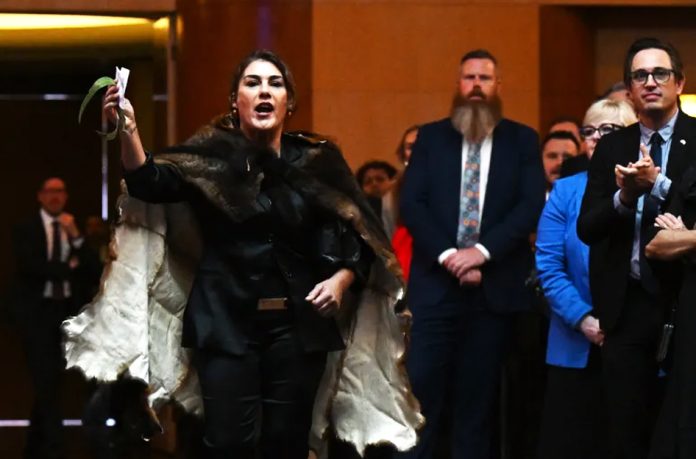An Australian Senator has defended heckling King Charles and accusing him of genocide after he addressed Australia’s Parliament House, telling the BBC that “he’s not of this land”.
Lidia Thorpe, an Aboriginal Australian woman, interrupted the ceremony in the capital of Canberra by shouting for about a minute before she was escorted away by security.
After making claims of genocide against “our people”, she could be heard yelling: “This is not your land, you are not my King.”
But Aboriginal elder Aunty Violet Sheridan, who had earlier welcomed the King and Queen, said Thorpe’s protest was “disrespectful”, adding: “She does not speak for me.”
The ceremony concluded without any reference to the incident, and the royal couple proceeded to meet hundreds of people who had waited outside to greet them.
After her protest, Thorpe told the BBC she had wanted to send a “clear message” to the King.
Thorpe, who is an independent senator from Victoria, is among those who have advocated for a treaty between Australia’s government and its first inhabitants.
Unlike New Zealand and other former British colonies, a treaty with Indigenous peoples in Australia was never established. Many Aboriginal and Torres Strait Islander people emphasise that they never ceded their sovereignty or land to the Crown.
She called on the King to instruct the Parliament to discuss a peace treaty with the first peoples.
“We can lead that, we can do that, we can be a better country – but we cannot bow to the coloniser, whose ancestors he spoke about in there are responsible for mass murder and mass genocide.”
Thorpe, who was wearing a traditional possum skin cloak, described the late Queen Elizabeth II as “colonising” and was made to repeat her oath when she was sworn in as a senator in 2022.
There has been a long-held debate on how to tackle the glaring disparities between First Nations people and the wider population, including poorer health, wealth and education outcomes and greater incarceration rates.
Last year a referendum on giving greater political rights and recognition to Indigenous people was resoundingly rejected.
Credit: bbc.com









